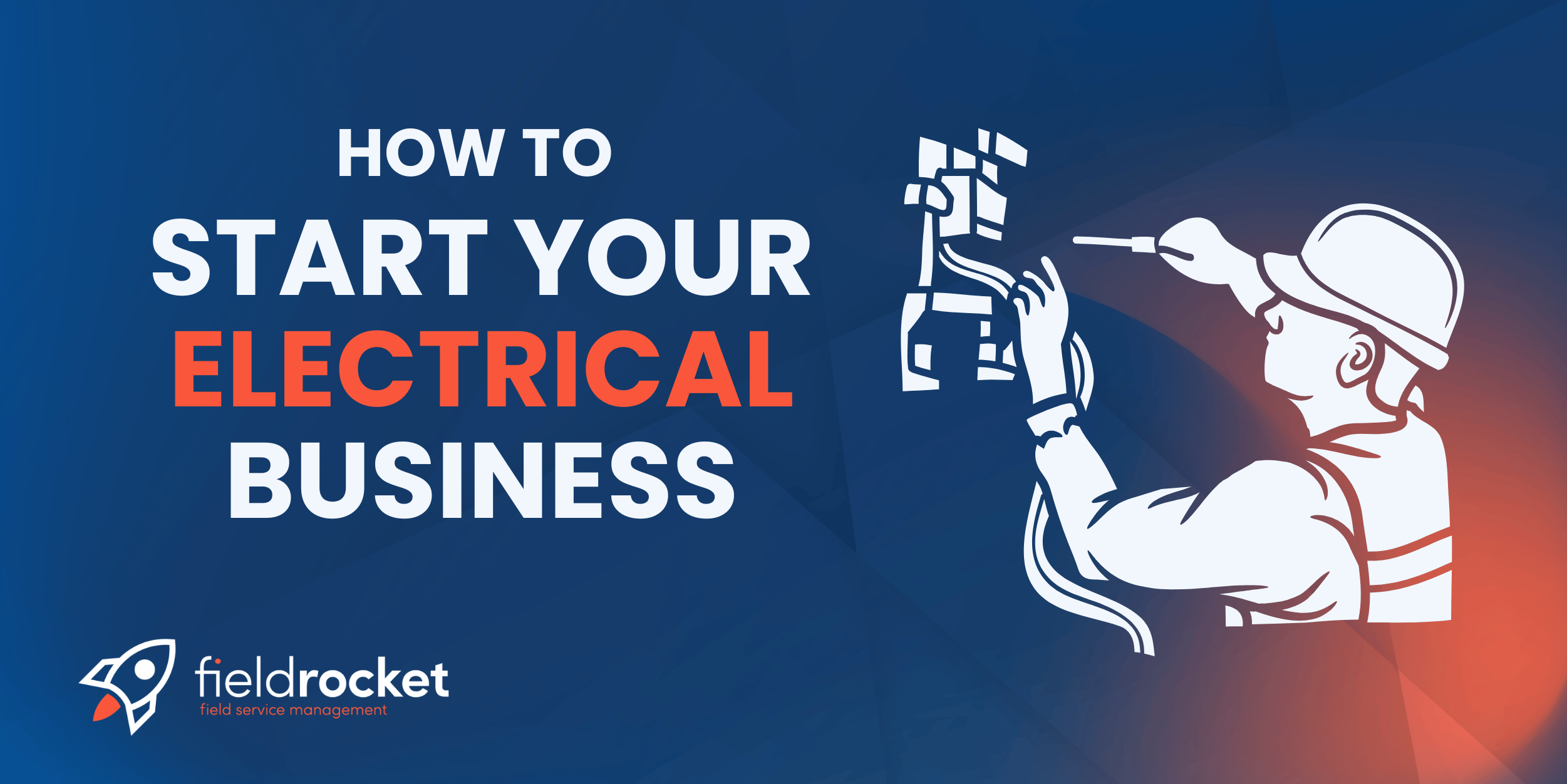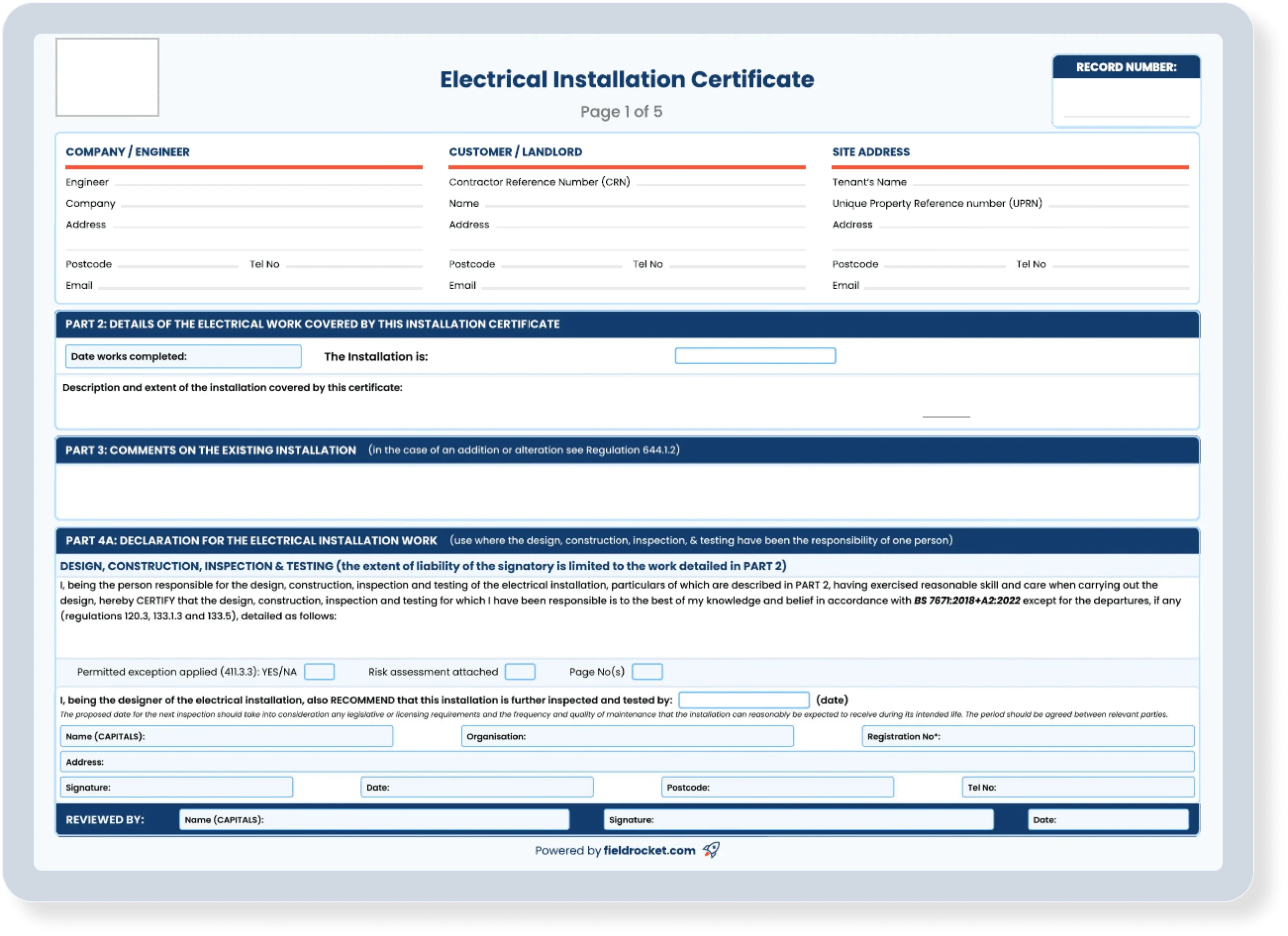How to Start an Electrical Business in the UK – Step by Step Guide

The UK’s demand for qualified electricians has never been higher. With households relying on smart technology and projects like the government’s ongoing housing initiatives, skilled tradespeople are in the spotlight. For electricians, this rising demand represents more than just job security; it’s an opportunity to be your own boss, set your working hours, and grow your earnings by starting an electrical business.
But where do you start? If taking the leap from employed to self-employed feels daunting, don’t worry.
This guide offers a clear, step-by-step approach to setting up a successful electrical business in the UK. We’ll cover everything from qualifications and legal obligations to business planning and customer acquisition.
Understanding the Basics of Becoming an Electrician
Required Qualifications
Anyone planning to start an electrical business must first ensure they have the necessary certifications. These credentials are key to building trust with customers and complying with legal regulations.
Here’s what you need to get started:
- NVQ Level 3 Electrotechnical Qualification (Installation) or equivalent
- 18th Edition IET Wiring Regulations (BS 7671)
- AM2 (Achievement Measurement 2) Assessment
For those looking to gain an edge, consider specialisation courses in areas like renewable energy systems or smart home technologies. These skills are in high demand and can set your business apart.
For approved training bodies and course information, visit the Electrical Contractors Association (ECA) or NICEIC websites.
Gaining Practical Experience
Starting your own business without real-world experience would be risky. Many electricians build their skills (and confidence) by working as employees or subcontractors before setting out on their own. This provides vital exposure to different types of projects and helps build a professional network, which will be useful when you launch.

Taking the First Steps in Building Your Business
Side Jobs and Private Work
If you’re unsure about going all in, dip your toes by taking private jobs while still employed. This approach allows you to build a client base and gain experience running smaller projects without taking on full business responsibility.
If you have friends and family who need electrical work, this is a great option as they’ll generally be more accommodating as you’re getting your business off the ground.
How Much Does It Cost To Start an Electrical Business in the UK?
The cost of starting an electrical business in the UK can vary from £2000 to £5000, depending on your setup and whether you need to budget for tools, certifications, insurance, and marketing.
Things will be cheaper if you already own basic equipment, but investing in quality tools and materials is essential for building a professional image and ensuring reliability.
For many, the way forward is to save some money before starting the business. However, you could also look at getting a loan from the bank.
Laying the Foundations for Long-Term Success
Create a Business Plan
A comprehensive business plan is your roadmap to success. It defines your goals, strategy, and operational processes. Include the following key elements in your plan:
- Business Description – What services will you offer?
- Market Analysis – Who are your target customers, and who is your competition?
- Marketing Plan – How will you attract and retain customers?
- Financial Projections – Create a realistic estimate of your start-up costs, pricing strategy, and earnings potential.
Writing a clear business plan keeps you accountable and can be updated as your business grows.
Sole Trader or Limited Company?
One crucial decision is how to register your business. Here are some pros and cons of each option to help you decide:
Sole Trader
- Pros: Easy to set up, lower upfront costs, and fewer legal responsibilities.
- Cons: Personally liable for debts, and you pay Income Tax on profits.
Limited Company
- Pros: Personal assets are protected, easier access to funding, and Corporation Tax rates may be lower than Income Tax.
- Cons: More paperwork and higher compliance responsibilities.
For a smoother process, you can register with Companies House or use businesses like The Formations Company.
Get the Right Insurance
Protecting your business with the right insurance is critical. Here are the main policies to consider:
- Public Liability Insurance: Covers claims for injury or property damage caused to third parties during your business activities.
- Professional Indemnity Insurance: Protects against claims of professional mistakes, negligence, or inadequate service.
- Employers’ Liability Insurance: Legally required insurance covering employee injuries or illnesses caused at work.
- Tool and Equipment Insurance: Covers repair or replacement costs for tools and equipment used in your business.
These policies safeguard you from legal claims, accidents, or unexpected losses.
Open a Business Bank Account
Separate your personal and professional finances with a dedicated business bank account. Not only does this make bookkeeping and tax preparation easier, but it also signals professionalism to clients.
Financial tools like QuickBooks, Sage, or Xero can simplify cash flow management further.
Invest in Equipment and Branding
A successful electrical business needs reliable tools, such as voltage testers, insulated screwdrivers, and cable detectors. You’ll want to mark these tools against theft, too.
A company van is extremely important too. Wrap it with your logo and contact details and it effectively turns it into a mobile advertisement.
We’ve also written a guide to the best electrician apps, which can come in handy.
Start With Job Management Software
The toughest part about starting your own business won’t be the electrical work – it’ll be organising work, managing your schedule, keeping track of invoices, and creating professional-looking certificates.
FieldRocket was made with electricians in mind, and allows you to keep everything you need in one place: from your customer’s details to your schedule, and records (including EICRs, EICs, and many more).

Building a Solid Customer Base
Develop a Pricing Strategy
Pricing your services fairly is essential for maintaining profitability and satisfying customers. Begin by calculating overhead costs, such as materials, insurance, and taxes, then determine your hourly rate and project fees.
Being upfront about pricing and offering clear quotes will build trust with your clients. See our pricing guide here.
Find Your First Customers
Your first customers will often come from your personal and professional network. Here are additional strategies to attract business:
- Google Business Profile – Boost visibility when locals search for an electrician.
- Online Directories – Join platforms like Checkatrade or Rated People.
- Referral Discounts – Encourage word-of-mouth advertising by offering discounts to customers who refer new clients.
- Social Media Presence – Share before-and-after photos of your projects and actively engage with your audience.
Find our guide to quoting electrical jobs here.
Build a Professional Brand
Everything from your company name to your logo and communication should convey professionalism. Consistent branding builds trust and sets you apart in a competitive landscape.
Develop a Pricing Strategy
Pricing your services fairly is essential for maintaining profitability and satisfying customers. Begin by calculating overhead costs, such as materials, insurance, and taxes, then determine your hourly rate and project fees.
Being upfront about pricing and offering clear quotes will build trust with your clients.
Find Your First Customers
Your first customers will often come from your personal and professional network. Here are additional strategies to attract business:
- Google Business Profile – Boost visibility when locals search for an electrician.
- Online Directories – Join platforms like Checkatrade or Rated People.
- Referral Discounts – Encourage word-of-mouth advertising by offering discounts to customers who refer new clients.
- Social Media Presence – Share before-and-after photos of your projects and actively engage with your audience.
Find our guide to quoting electrical jobs here.
Build a Professional Brand
Everything from your company name to your logo and communication should convey professionalism. Consistent branding builds trust and sets you apart in a competitive landscape.
Why Wait? Take the First Step to Your Electrical Business
Starting your own electrical business in the UK can lead to greater independence, flexibility, and income potential. While the process requires effort and planning, the outcomes are worth it.
Things get far easier if you start strong – so why not start a free trial with FieldRocket and see how we can help?
Create, sign, and send all your industry certificates with FieldRocket
Looking for a way to simplify your paperwork? FieldRocket offers customisable, professional & paperless certificates and forms for all trades.
Get started with a 7-day free trial by clicking below.
ELECTRICAL CERT SOFTWARE
Frequently Asked Questions
Is it safe to store only digital copies of records and certificates?
Yes! Any reputable certificate software like FieldRocket will use several modes of backing up your files and keep them accessible even offline.
I’ve been using paper to create certificates. Is the transition from paper to software difficult?
Not at all. You’ll have a date at which you started using software, and any records created after then will be digital. There’s no need to move all of your paper records online. They can be kept as usual until they’re no longer needed.
What kind of certificates can you create using FieldRocket?
FieldRocket has an expansive range of certificates for many industries, including electrical. You can create anything from an EICR to Portable Appliance Testing, Job Sheets, and everything in between. Find out a full list here.
What’s the benefit of having customisable forms?
Customisable forms allow you to add your logos for extra professionalism or create something entirely new to suit your business’ workflow.
What benefit do paperless certificates have for customers?
Using an electrical certificate app helps you keep your records neat, professional, and readable. They’re also highly convenient as they can simply be emailed to your customers in the field.

